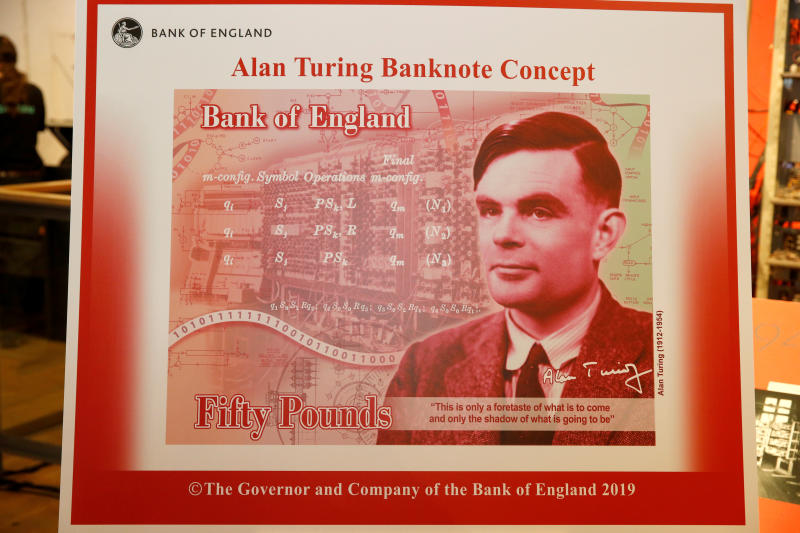Britain to honour gay computing pioneer Alan Turing on banknote
Sign up now: Get ST's newsletters delivered to your inbox

A new 50-pound note featuring mathematician Alan Turing is presented at the Science and Industry Museum in Manchester, England on July 15, 2019.
PHOTO: REUTERS
Follow topic:
LONDON (DPA) - Britain said on Monday (July 15) that it will honour computing pioneer and wartime code-breaker Alan Turing, prosecuted in 1952 for his homosexuality, with his portrait on a new £50 (S$84.91) banknote.
The Bank of England, the central bank, said it chose mathematician Turing from a shortlist of 12 scientists nominated by public vote because of his "impact on both science and society".
Mr Turing is best known for his role in creating code-breaking machines used on intercepted German military messages during World War II.
The reverse of the banknote, to be issued in 2021, features workings from his 1936 paper On Computable Numbers.
Bank governor Mark Carney said Mr Turing was "a giant on whose shoulders so many now stand".
"(He) was an outstanding mathematician whose work has had an enormous impact on how we live today," Mr Carney said.
"As the father of computer science and artificial intelligence, as well as war hero, Alan Turing's contributions were far-ranging and path-breaking."
In 1952, Mr Turing was convicted of gross indecency for having a sexual relationship with a man, a conviction that cost him his consultancy role in British intelligence.
"His security clearance was revoked for no reason other than his homosexuality," Mr Carney said.
Mr Turing, who was forced to choose chemical castration as an alternative to prison, killed himself with cyanide two years after his conviction. He was 41 years old.
Mr Turing received an apology from the government in 2009 and a royal pardon in 2013.
His case inspired the 2017 "Turing's law," which allows pardons for thousands convicted of homosexuality.

